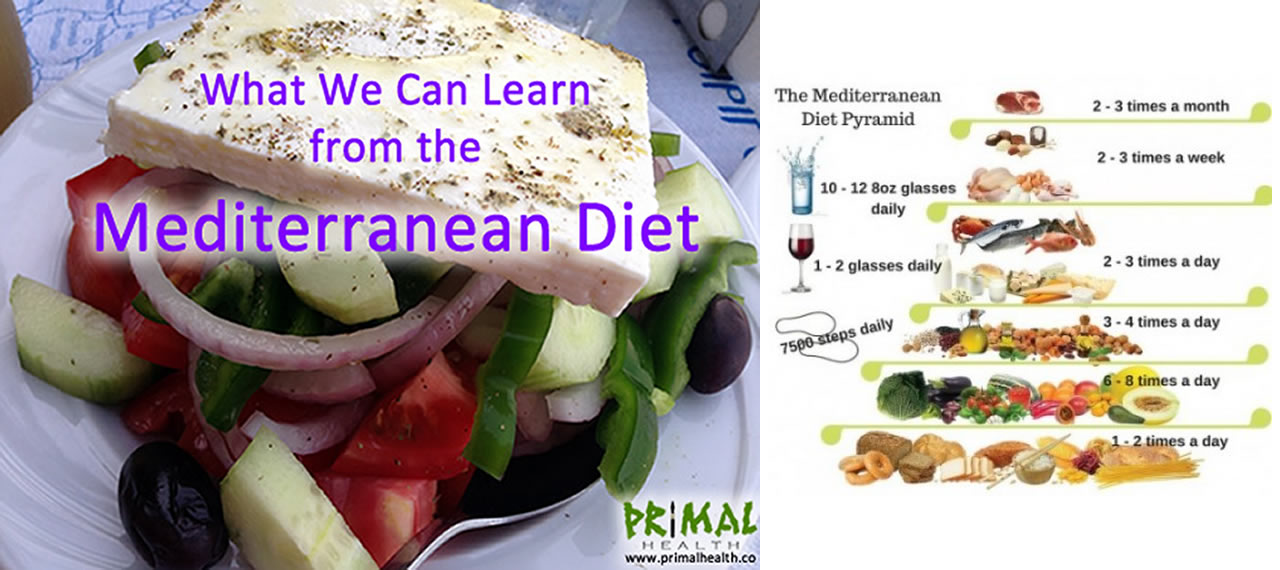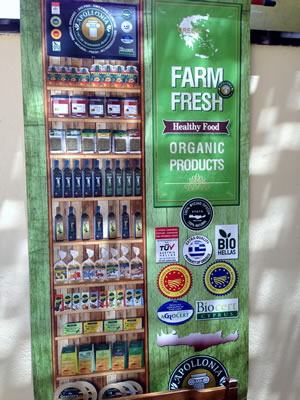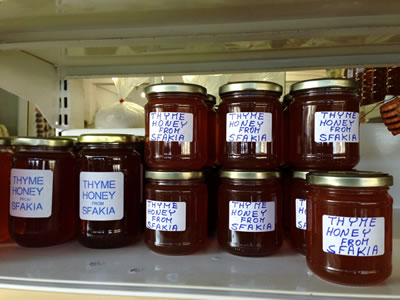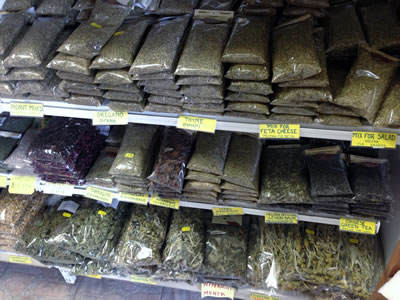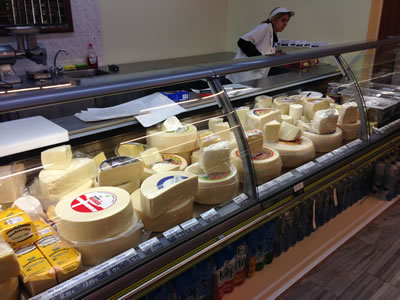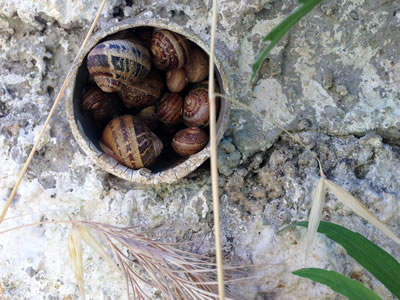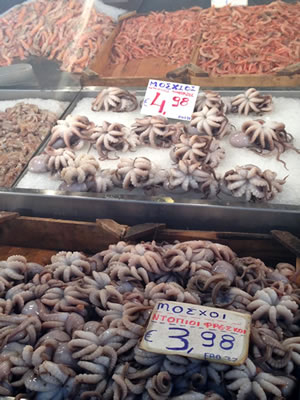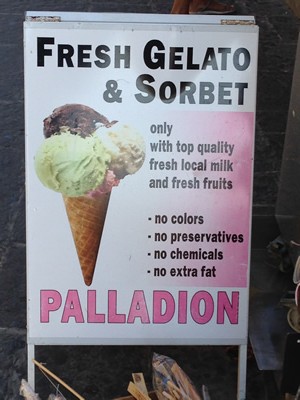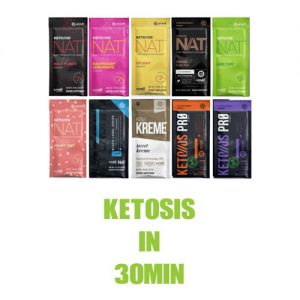We’ve all heard about how healthy the Mediterranean Diet is, but besides lots of fish and olive oil, what actually makes it so healthy? Spending the last month in Greece, we found ourselves in real food heaven and discovered some of the real secrets behind this primal diet.
Traditional, organic food is a matter of national pride
The Greeks are extremely proud of their cuisine, and their cultural knowledge and passion for fresh, local and traditionally made foods is astounding.
The first day we were in Greece, both our young café waiter and middle-aged taxi driver spoke passionately about how foods used to be grown and prepared and how the modern way was inferior and they must not lose their food traditions. And we hadn’t even said anything to provoke these rants! Many people showed their disgust of pesticides and other chemicals used in farming, bewildered why anyone would ‘ruin’ the food and water supply with such things.
The food is fresh, local and wild
And it didn’t stop there. Restaurant menus boast “village” sausage, which is made fresh from local pigs (with no fillers – just meat, herbs and spices). An asterisk next to a menu item means it has been frozen, and the waiters often confirm this apologetically, “Sorry, that one we don’t have fresh. You still want?”
Every village, town and city proudly sells its own local olive oil, honey, herbs, salt, dairy products, meat and/or produce. Even the wine and spirits are touted as special ones from the local region.
Bee boxes dot the hillsides, where the bees create various types of honey from different plants and trees. The honey is never processed or pasteurised, and for some reason it is noticeably less sweet and more delicious than what we are used to.
Local staples like olives, nuts, beans, yogurt, and cheese are often unpackaged in the shops, sitting in bulk ready for customers to order by the kilo. It’s only been in the past 10 years or so that foods have started to line the shelves pre-packaged.
Food grows everywhere. We ate apricots, plums, figs and nectarines off the trees. Tomato plants covered in juicy fruit sprout up through cracks in the sidewalk. Every terrace, patio, balcony, rooftop and carport is covered not with a roof, but a carpet of vine leaves with bunches of grapes hanging down for plucking and eating. Wild greens, known as horta, are picked from random bushes on the way home, then boiled and eaten for their vast nutritional benefits.
The famous Greek salad of olives, onion, cucumber and tomato is always cut fresh to order, right before it’s eaten. This maintains high nutritional content AND taste. Salad, along with most other foods, is dressed simply in fresh dried oregano, sometimes a splash of wine vinegar (from all those grapes), and of course olive oil.
Not all olive oil is created equal
Olive oil is the most famous component of the Mediterranean Diet, and in Greece it is of the highest quality and taste. Unrefined, or extra virgin, is expected as the norm, and the beautiful flavour is like nothing we’d ever had in other countries. This is probably due to the freshness.
You see, olive trees grow like weeds all over the country, ensuring a plentiful supply of fresh olives. People we stayed with boasted how many olive trees they had on their land, and how in season, they pick their olives and take it to the local press to make their own oil.
Fermented & Raw Dairy
The other famous topping on the Greek Salad is a thick slice of feta cheese, usually made the traditional way from sheep and/or goat’s milk. Unprocessed cheeses are a staple food in Greece, displayed in huge rounds and cut to order, and eaten with other foods or used as a common ingredient in various dishes.
Greek Yoghurt is also made from these animal’s milk, and rarely pasteurised, unlike the greek yoghurt imitations around the world. The taste is incomparable, and as the Greek’s main fermented food eaten with most meals, its rawness ensures a wealth of probiotics.
Meat is not the main event, Seafood is not what you think
I think we can learn a lot from the Greek approach to eating animal foods. First of all, local is king, so you will rarely find beef dishes on all those Greek Islands where there are no cows. Pork, goat, chicken and rabbit dishes are common, as these are usual ‘backyard animals’ which are raised and eaten locally, instead of factory farmed.
Snails are another, lesser known animal food staple of the Mediterranean diet, which you can find wild everywhere, so you know they are fresh. Some diet experts believe this is one of the key components to long, healthy lives in the Mediterranean, as snails are highly nutritious.
Secondly, meat is traditionally an addition to the mainly salad and vegetable dishes, instead of the other way around. And meat is mostly reserved for wintertime meals, when there is not as much fresh produce to eat. In the summer, fruit and vegetables are traditionally the focus, with some fish or a bit of meat sometimes.
And of course there’s plenty of seafood, a famous component of their healthful diet, especially in a country with so many islands and coastline. But instead of farmed salmon and white fish filets like we eat in America and Australia, Greek menus feature plenty of octopus, squid, whole local wild fish, and tiny fish like sardines, which are less toxic and full of nutritious oils.
What about dessert?
It’s true that Greek women pride themselves on their baking skills, and Greek bakeries are plentiful, full of various pastries, cookies, chocolates, ice creams and even candies. If you’ve ever had the famous baklava, you know how sweet Greek deserts can be, the filo dough dripping with honey and sugar syrup.
However, it seems that the Greeks don’t eat a huge amount of desserts. Like the French approach, they savour and appreciate these traditional sweets in moderation, never overdoing it.
Dessert after a meal, especially in the spring and summer, is usually fresh fruit. At almost every restaurant we went to, we were served a free plate of watermelon or honeydew as soon as we asked for the bill.
So are the Greeks really healthy?
However, we were still bewildered by the alarming amount of fully-stocked bakeries and the amount of bread being eaten. Though the Greek people rank high on the list for longest life-span, the average Greek body shape didn’t seem to reflect these tenants of the Mediterranean Diet and some of the lifestyle habits are far from what we’d consider healthy.
And so we explore smoking, drinking, coffee and other favourite Greek pastimes in our next article, Contradictions of the Mediterranean Diet & Lifestyle, and discover that it’s when we look beyond diet, that we can truly be healthy.
What We Can Learn From The Mediterranean Diet

